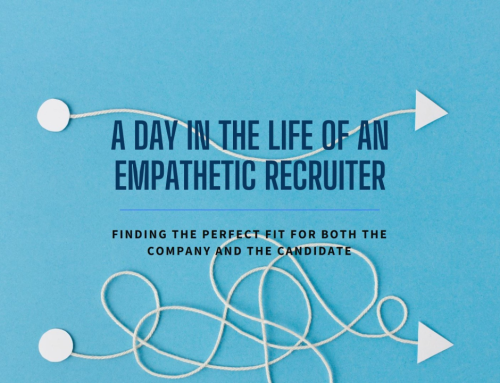Millennials receive a lot of flack for the massive transformations occurring in business today. To baby boomers and older generations, the workforce is almost unrecognizable. The shift from a customer-centric to employee-centric experience has redefined business strategies from the ground up.
Employers once ruled the market with the privilege of being able to hook the best candidates with an attractive compensation package and upgrade in title. Today, the priorities have changed to focus more on development, transparency, and work-life balance. Many companies are struggling to adapt and are facing a loss in top talent.
If businesses want to remain competitive in their industry, they have to redesign their business from the bottom up with a focus on the internal culture. The popular TV series, The Office, remains a hit among viewers because of its ability to mimic the realities of the daunting outward-focused corporate culture.
The siloed office floors filled with hundreds of dull, lifeless cubicles, an uninspiring atmosphere, and non-existent culture have been revamped to include a more interactive, engaging and welcoming environment. The barries from the hierarchical cultures are being demolished and used as the foundation for the flat organizations’ that new generations crave. This isn’t the only change businesses are facing.
Here are the five ways millennials are shaking up the workforce and undoing everything baby boomers once knew
Soft skills have been slow to gain momentum in business as hard skills are easier to measure and identify. In recent years, businesses are refocusing their priorities from a “leave your personal life at home” mentality to understanding how to become more self-aware of their own emotions as well as their employees.
When employees feel valued and cared for, their motivation and job performance increases and retention decreases. If employers neglect the soft skills and only focus on the hard skills, it creates barriers in the relationship and risks tarnishing the morale of the company. Companies such as Google have this down pat. Their mindfulness training course helps teach employees skills that improve their emotional intelligence, decrease their stress and increase their communication.
Authentic Transparency
The thick walls that separate each layer of the hierarchy are now used as the foundation to support a flat organization where communication is open and everyone interacts on the same playing field. According to a recent article in Forbes, “millennials will only interact with brands that are open and transparent, stand for more than their bottom line, and address environmental and socioeconomic issues in the community.”
Sites like Glassdoor, Kununu, social media platforms and online forums make finding out insider information easier than ever. This information helps millennials carefully weigh their decision to apply, interview or accept a position with a company.

Remote work promotes a healthy work-life balance by giving employees time back with their family
Remote Work Revolution
Working from home is no longer a luxury but instead a requirement. While traditional 401K benefits are still popular, they’re not preferred. Instead, millennials want flexibility and the option for remote work. Employers like Yahoo implemented a remote work policy early on giving their employees the flexibility to be closer to their kids, ditch the commute and work from the comfort of their home. In 2013, the then CEO, Marissa Meyer, stirred up controversy for going backward and requiring all remote workers to work in the office or lose their job. This didn’t end up so well for the internet company. As of 2017, they were bought out by Verizon and the Meyer resigned after being unable to turn the company around.
According to SHRM, millennials may not even consider a job opportunity if it doesn’t offer a remote work opportunity. The challenge businesses face with the new wave of remote workers is keeping them engaged and maintaining the relationship. It’s easy to keep remote workers siloed when you can’t see them. It’s crucial to have a strategy in place to keep them in the loop and feeling a part of the team. When employees feel a part of the team, their motivation, productivity, and loyalty increases.
Strong Professional and Personal Balance
With America being the most overworked country in the world, the US has a long way to go in terms of achieving work-life balance compared to the European countries such as Switzerland, Denmark, Norway or the Netherlands. The typical culture has employees taking work home with them, long hours of overtime and working over the weekend. A study last year showed that an average of 41% of American workers doesn’t take a single vacation day.
It’s shocking one of the most developed countries in the world still operates on an underdeveloped mindset. While the new generation receives a lot of flack for not accepting traditional working methods, they’re the only generation speaking up and fighting for balance. This outspokenness is helping to speed up the process forcing companies to reevaluate their benefit offerings with a strong focus on work-life harmony.
Savvy High-Tech Influence
As the tech boom spreads globally, companies are shifting away from traditional paper trail methods instead of focusing on enhancing their systems and equipment to increase speed and efficiency. The new generation is more flexible, open to change and willing to get hands-on to discover new techniques.
The phrase “if it’s not broke, don’t fix it” is crippling to their creativity as they thrive off of staying ahead of the tech curve to discover new methods of completing tasks and automating processes. As the leaders of the future, the new generation is retiring redundancy in business and making employers adopt a more streamlined process.
Companies can reap many benefits from joining the tech revolution by saving time and money, creating a better experience for clients and employees while expanding their reach. Remaining on top of trends helps in continually developing employee skill sets. This commitment to future-proofing your business is a great way to retain top talent.







Leave A Comment